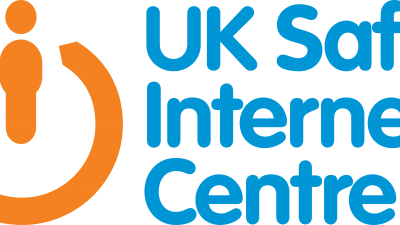Staying Safe Online

The internet is a brilliant place to connect with others, to be creative and to discover new things.
Many people use the internet to go on Instagram, Snapchat, Facebook Twitter and other social media sites to keep in touch with friends and family online.
Talking to people online that you know is something that we all do, however people that you don’t know can also use social media to become your follower or friend.
You may feel the pressure of having lots of followers and friends online, however it’s easy for someone to pretend to be someone else on the internet and you could end up having conversations on social media, with people who aren’t who they say they are.
Top Tips
The UK Safer Internet Centre has put together a list of top tips to help keep yourself safe online for children and young people under 11s and 11-19:
Safe: Keep safe by being careful not to give out personal information when you’re chatting or posting online. Personal information includes your email address, phone number and password.
Meet: Meeting someone you have only been in touch with online can be dangerous. Only do so with your parents’ or carers’ permission and even then only when they can be present. Remember online friends are still strangers even if you have been talking to them for a long time.
Accepting: Accepting emails, messages, or opening files, images or texts from people you don’t know or trust can lead to problems — they may contain viruses or nasty messages!
Reliable: Someone online might lie about who they are and information on the internet may not be true. You can check information out by talking to somebody you trust about what you have found out, seeing if the information is the same on another website or checking in a book.
Tell: Tell a parent, carer or a trusted adult if someone, or something, makes you feel uncomfortable or worried, or if you or someone you know is being bullied online.
1. Protect your online reputation: use the services provided to manage your digital footprints and ‘think before you post.’ Content posted online can last forever and could be shared publicly by anyone.
2. Know where to find help: understand how to report to service providers and use blocking and deleting tools. If something happens that upsets you online, it’s never too late to tell someone.
3. Don’t give in to pressure: if you lose your inhibitions you’ve lost control; once you’ve pressed send you can’t take it back.
4. Respect the law: use reliable services and know how to legally access the music, film and TV you want.
5. Acknowledge your sources: use trustworthy content and remember to give credit when using others’ work/ideas.
Check your profiles
Online safety experts from SWGfL (South West Grid for Learning) have put together some social media checklists which will quickly answer common questions such:
- Who can find content I post?
- How does my profile appear?
- How do I block and delete?
- What is there about you on the web?
- How do you use ‘Follower / Friends’ lists?
- How do I unfollow or delete something I’ve posted?
- How do I report a problem?
Staying Safe Online Quick Guide
A poster designed to give quick advice in relation to staying safe online.
Making the right Cyber Choices
Those with a real interest in how tech works could have a bright future ahead. Skills in coding, gaming, cyber security or anything digital-related, are in high demand. Unfortunately, the digital world can also be tempting for young people for the wrong reasons. Many are getting involved in cyber crime without realising that they are breaking the law. This can have serious consequences for someone’s broader future and not just their career.
If you’re looking for more information on using your cyber skills positively, then download one of these helpful Cyber Choices leaflets:
There are plenty of online and offline resources to develop your skills. You can find them all in the “Developmental Resources” leaflet.
Developmental Resources (416 KB)
Sexting & Revenge Porn
There is a growing trend among adults and young people, including children, for creating and sending self-generated indecent images, known as sexting.
The SWGfL have put together a So You Got Naked Online guide which will give a run down of all matters Sexting & Revenge Porn. Below also is a breakdown on some of the commonly asked questions young people have:
This is when a person takes intimate photographs of themselves, and sometimes even of friends, and sends it to a friend, boyfriend or girlfriend via their phone or puts it on the internet – for example on Instagram, Skype, WhatsApp, Snapchat.
Sending any indecent image of a child (under 18) is a serious sexual offence. If someone is prosecuted for sharing indecent images of children, they may be placed on the sex offenders register.
A recent change in law banned the sharing intimate and often explicit images and videos, as these were being used in many cases afterwards to shame and humiliate the person who sent them, who is often under pressure and feels forced to.
The Criminal Justice and Courts Act 2015 bans the disclosure of private sexual photographs and films with intent to cause distress, commonly known as ‘revenge porn’.
It is now an offence for a person to send a private sexual photograph or film if it is sent without the permission of the person who appears in it and with the intention of causing them distress.
The laws is both online and offline and to images which are shared also by uploading the images on the internet, by text and e-mail, or by showing someone a physical or electronic image.
Anyone guilty of this offence could face a prison sentence up to two years, a fine or both.
Revenge porn, can often occur (but not always) between two former partners or friends that have fallen out. This can affect anyone, and North Yorkshire Police advises anyone who believes they are being exploited in this way to contact us immediately.
Offenders can often post the private images and videos of their victim to the victim’s online accounts such as Instagram, Snapchat, Facebook, Twitter so the victims family and friends see the images with the intention of it causing distress.
In some instances and particularly in honour-based revenge porn cases, the images are directed at family members to cause maximum harm to the victim.
If you or someone you know is being threatened with or is subject to revenge porn offences, please call North Yorkshire Police on the non-emergency number 101.
Alternatively, contact Crimestoppers anonymously on 0800 555 111.
A helpline for revenge porn victims has already been established by the South West Grid for Learning (SWGfL) and information about it can be found on their Revenge Porn Helpline Website.
The helpline is open from 10am:4pm Monday-Friday and can be reached on 0845 6000 459.
Reporting a Nude Imagine Online

If you’re under 18 and a nude imagine or video of you has been shared online, you can report it and get it removed from the internet. Childline has a Report Remove Tool, to use it you’ll need to:
- Create a Childline account or already have an account
- Confirm your age to show that you’re under 18
- Upload your image or a url of where it has been shared
Visit the Report Remove Tool page on Childline here for further information and to use the tool.
Reporting Harmful Content that you see on the internet
In simple terms, harmful content is anything online which causes somebody distress or harm. This includes a huge amount of content and can sometimes depend on who is doing the viewing; what may be harmful to one person might not be seen as a problem by someone else. Below is a selection of websites you can go to make a report:
Report Harmful Content is a dedicated website which allows you to report on the following eight types of harm:
– Online Abuse
– Bullying or Harassment
– Threats
– Impersonation (somebody pretending they are somebody else)
– Unwanted Sexual Advances
– Violent Content
– Self-Harm or Suicide Content
– Pornographic Content
To make a report, click here.
If you come across images and videos of child sexual abuse, reporting them to the Internet Watch Foundation is the right thing to do.
Reporting is quick and easy and you can report completely anonymously (nobody will know it is you who has reported this). To make a report, click here.
If you want to report a child at risk or you’d like to report something other than an online image or video of child sexual abuse, contact North Yorkshire Police if in an emergency on 999 or on 101 if non-urgent.
If you’re worried about online abuse or the way somebody has been communicating online with you let CEOP (Child Exploitation Online Protection know). Some of things children and young people have reported include:
– Someone online has asked me to send them nude images
– I shared a nude image with someone online and they are threatening me
– I did something that I was embarrassed about on webcam and someone has turned nasty towards me
– Someone I don’t know is asking me to live-stream and do things I don’t want to do
– Someone online kept asking me to meet them face-to-face and I feel pressured by them
– Someone online was talking to me about sex and it made me feel uncomfortable
– Someone online is putting pressure on me to do things I don’t want to do
– Someone I met in an online game keeps trying to talk to me privately
To make a report to CEOP click here.
If you’ve seen or heard something that could potentially be related to terrorism, trust your instincts and report it. You can help us stop terrorists’ and extremists’ online presence by reporting content such as:
– Speeches or essays calling for racial or religious violence
– Videos of violence with messages in praise of terrorists
– Postings inciting people to commit acts of terrorism or violent extremism
– Messages intended to stir up hatred against any religious or ethnic group
– Bomb-making instructions
– Advice on how to obtain or make weapons
If you see online graphic or violent extremist material or content that supports, directs or glorifies terrorism please report this here.
Useful Websites to visit
There are a number of websites which can help give you further guidance on how to stay safe online, what to do if you are worried about something that has happened online and what to do if you see something that you find upsetting:









 View all our news
View all our news